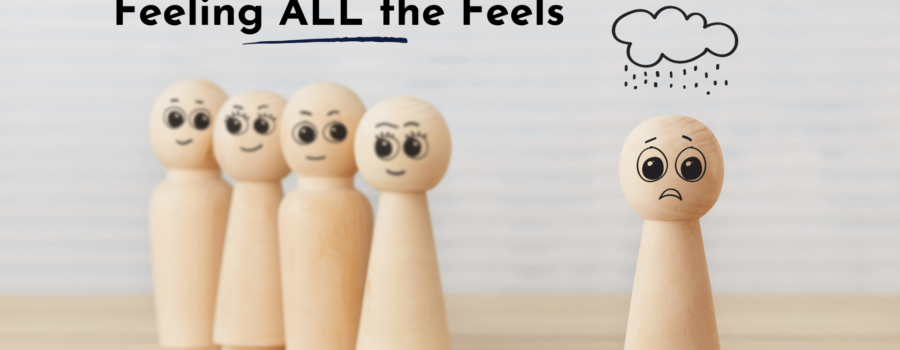The pressure to always feel happy and content is immense in today’s society. We are constantly bombarded with images of perfect lives and success stories, which can make us feel like we’re not measuring up. But the truth is, it’s okay to not be okay. Life is full of ups and downs, and it’s normal to feel sad, anxious, or stressed at times.
Holding in Emotions is Damaging
Trying to suppress our emotions and pretend everything is fine only adds to our stress and anxiety. When we don’t acknowledge and process our feelings, they can build up inside of us until they become overwhelming. This can lead to unhealthy coping mechanisms, like substance abuse or binge eating, which only make us feel worse in the long run.
Neuroplasticity is Key
So how do we break this cycle and learn to be okay with not being okay? It starts with understanding the power of our thoughts and beliefs. Our thoughts and beliefs shape our reality and influence our actions and behaviors. If we believe that we are capable of change and growth, we are more likely to take actions that align with that belief.
One way to start changing our thinking patterns is through the process of neuroplasticity. Neuroplasticity refers to the brain’s ability to change and adapt throughout our lives. By actively challenging our negative thought patterns and replacing them with more positive ones, we can rewire our brain and create new neural pathways that support our growth and well-being.
Changing Thought Patterns Take Time
But changing our thinking patterns takes time and effort. It’s important to be patient and compassionate with ourselves as we work through this process. We may experience setbacks and challenges along the way, but that doesn’t mean we’re not making progress.
Being okay with not being okay also means learning to practice self-care and self-compassion. This means taking time to prioritize our physical, emotional, and mental well-being. This might include activities like exercise, meditation, journaling, or therapy. It also means treating ourselves with kindness and understanding, even when we’re struggling.
Conclusion
Being okay with not being okay is about embracing the ups and downs of life and learning to navigate them in a healthy way. By changing our thinking patterns and practicing self-care and self-compassion, we can cultivate resilience and thrive even in the face of adversity. So remember, it’s okay to not be okay, and you’re not alone in your struggles.
Want a FREE e-guide that will help you work through your emotions and thoughts? Download Mastering Self-Regulation: 10 Ways to Stay Centered in Stressful Times by clicking here.


